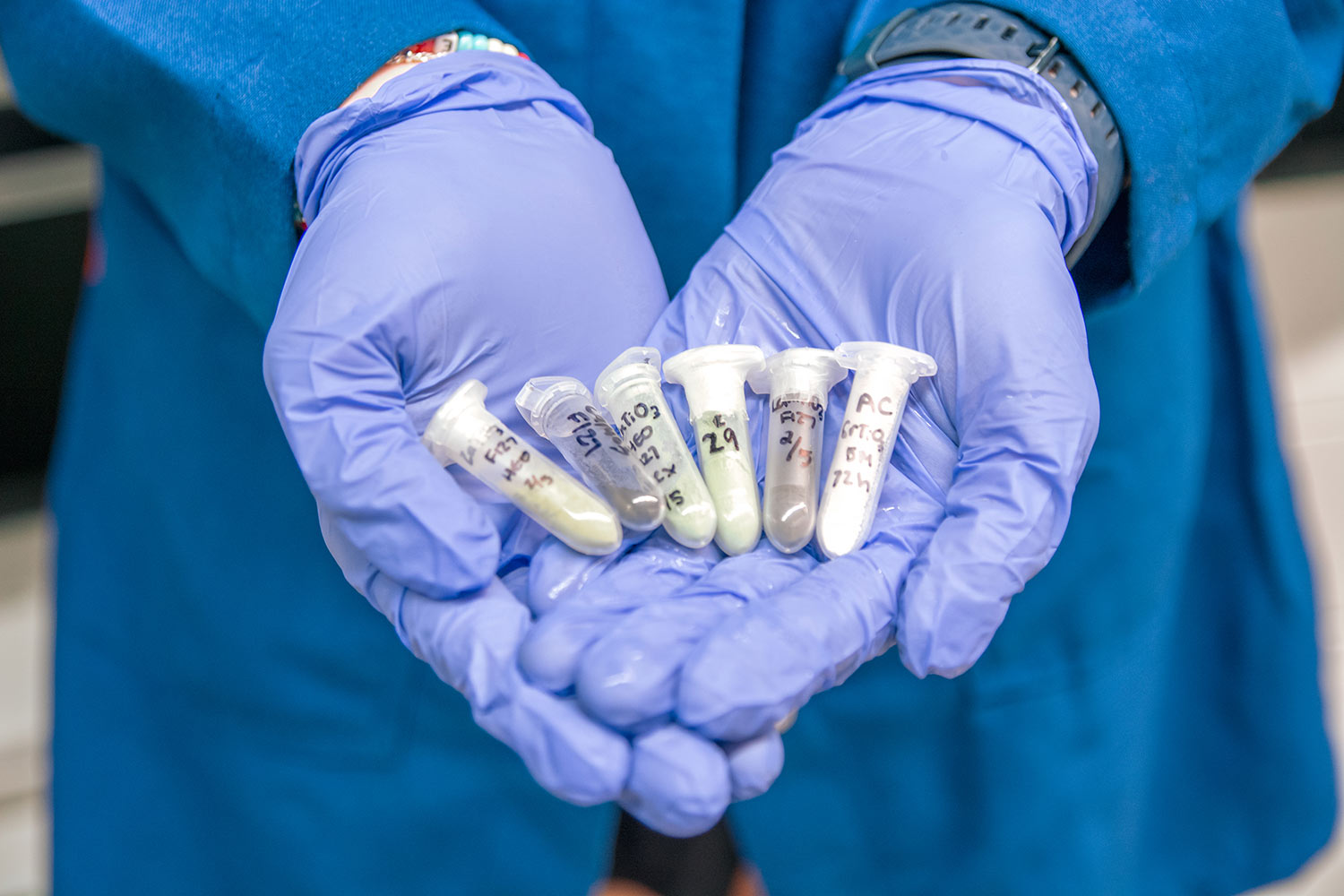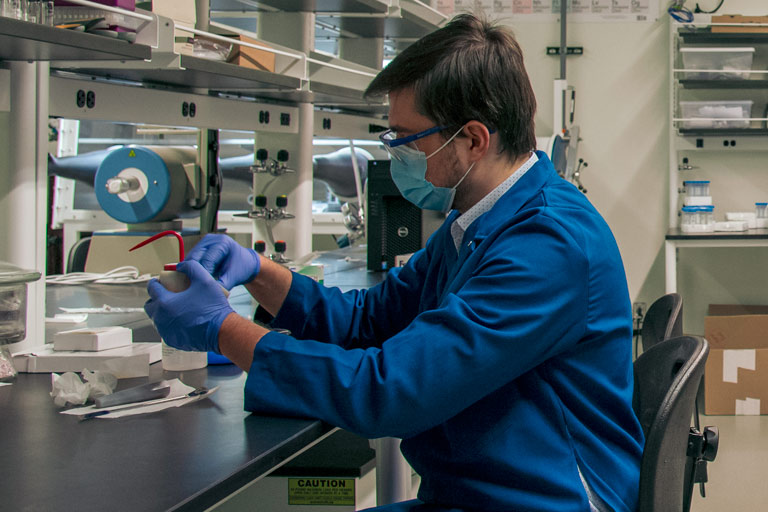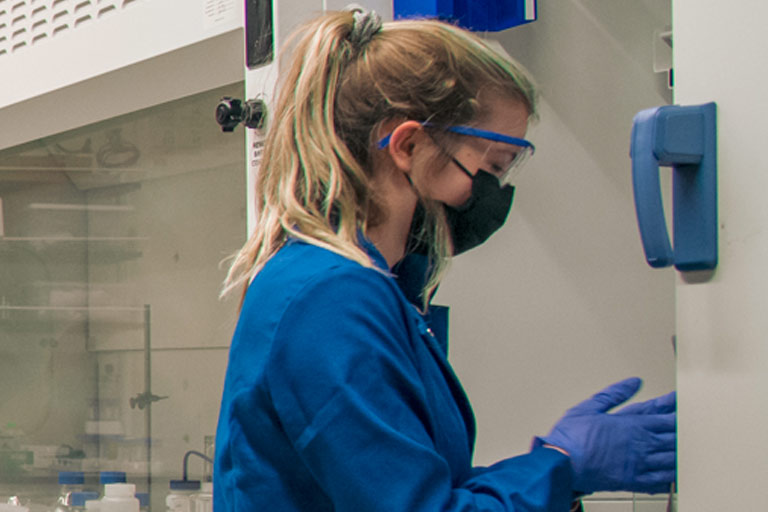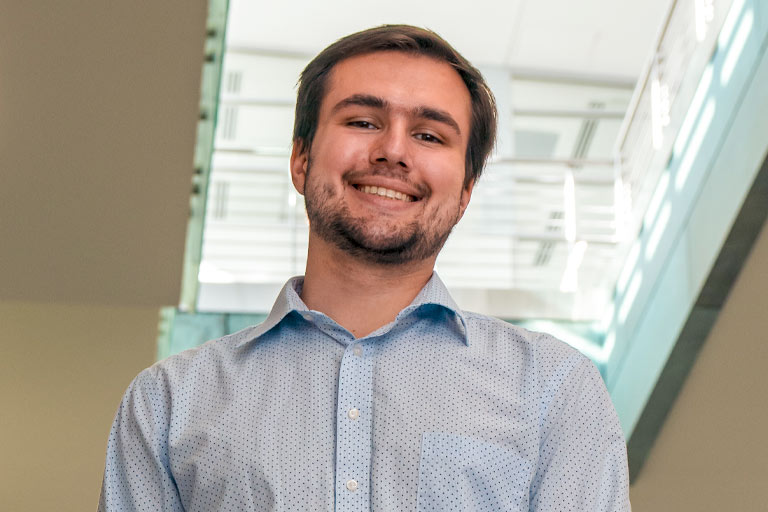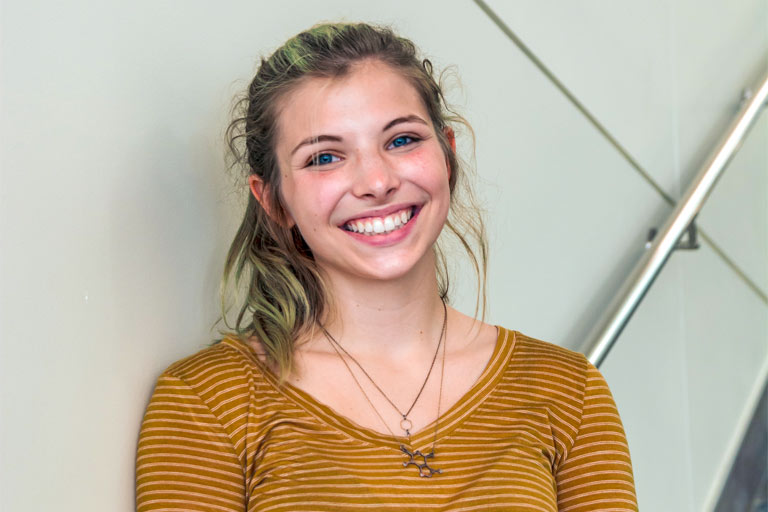Assistant Professor of Materials Science and Engineering Katharine Page wanted undergrad researchers in her joint UT-ORNL research group, so former Center for Materials Processing Associate Director Chris Wetteland identified the right students for the job. Since late 2019, materials science majors Noah Sloan and Alexandria Carter have found their stride in the lab thanks to guidance from Page and Research Associate Palani Jothi.
Page’s group makes and explores new materials, promoting particular arrangements of atomic structure and enhancing specific physical properties. She handed over the reins of specific projects to Sloan and Carter, giving them a high degree of responsibility and support.
“We’re trying to train them to think like researching scientists early in their career,” Page said, “not just give them a recipe to follow.”
Sloan is studying the advantages and shortfalls of three different methods for synthesizing high entropy oxides.
“Generally, this is the first time anyone has attempted to synthesize these chemical combinations,” said Sloan. “It’s difficult to determine how we should tweak our techniques to produce our target samples.”
Carter is focused on making nanoparticles with specific shapes and surfaces in order to change how they respond to electric fields. What excites her most is the moment of discovery each time she creates a new mixture in the autoclave.
“It could be different than what I intended to make,” she said. “Usually I know based on color, temperature, and what I’ve added if I’m getting close.”
“It’s great if they have exciting research results,” Page said of both students. “But I’m focused on them enjoying the process of scientific discovery. It is training yourself to challenge your assumptions, try new things, and keep at it. The value of the whole process is what I want them to walk away with.”
Page discovered her fascination with materials science and her love for the “research design and discovery loop” by participating in undergraduate research herself. She wants to provide her mentees with a similar experience—and share her connections in ORNL’s Neutron Scattering Division.
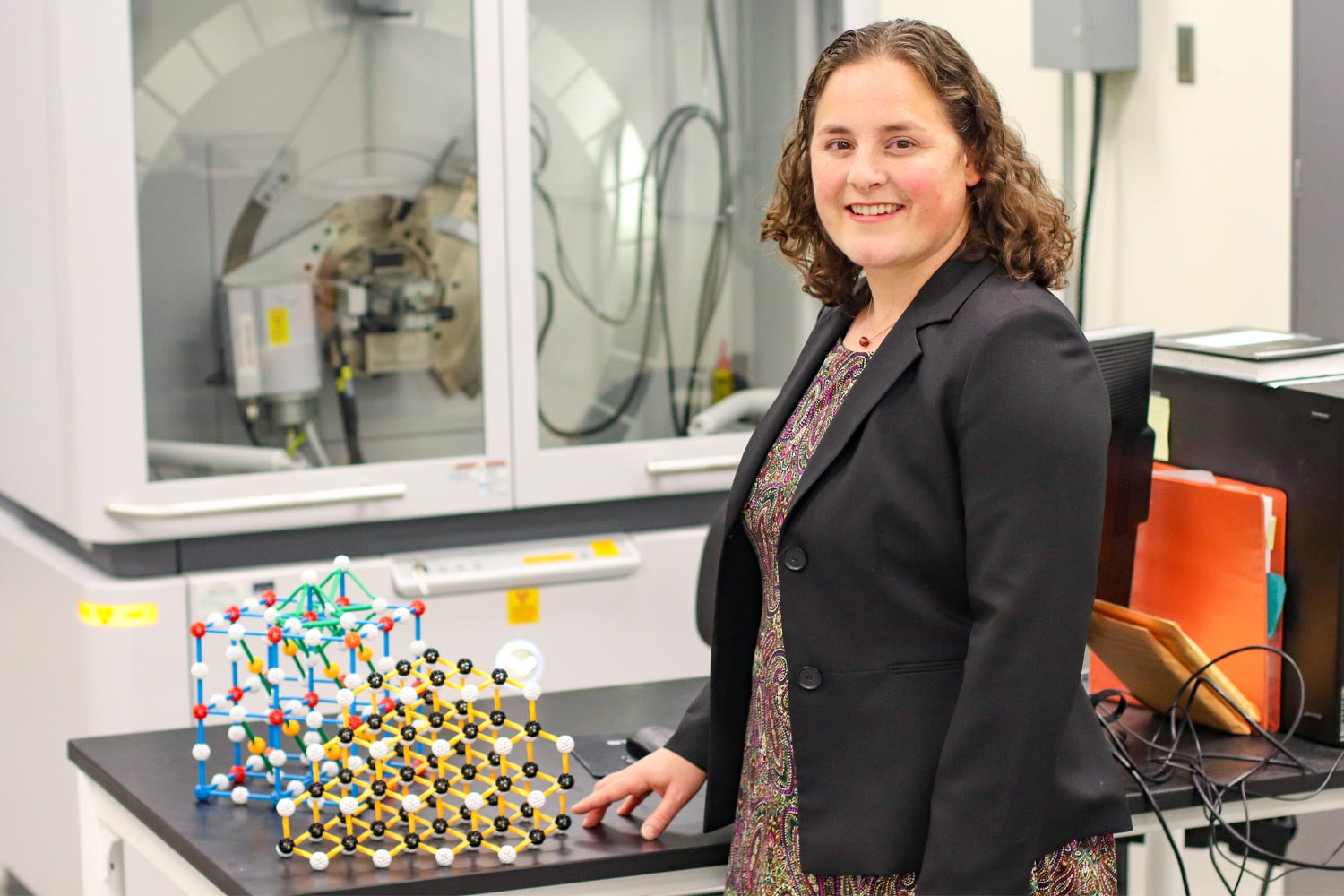
“Knowing people from both UT and ORNL, and having this massive amount of knowledge surrounding me all the time, is a huge advantage,” said Carter, whose goal this fall is to learn how to write a publishable paper. “I’m on the brink of finding something paper-worthy in my project,” she said.
“When they started, they didn’t have exposure to research,” Jothi said. “Now, I can tell them how to make this compound in this way, and they have the experience to do that on their own.”
“They were both open to seeing what research would be like,” Page said. “They didn’t have preconceived notions of how things should be done. They came in fresh and ready to learn.”
Now, equipped with connections and experience, Sloan is one semester away from graduation. He aims to continue “refining skills I will need to become an excellent scientist and engineer when I enter the workforce.”
